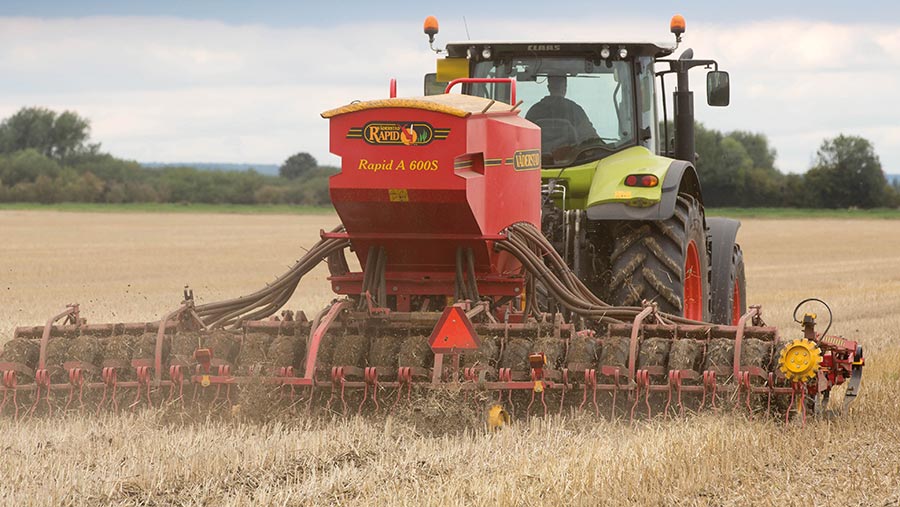Experts urge caution over carbon payment schemes
 © Tim Scrivener
© Tim Scrivener Carbon schemes that promise to pay farmers for reducing or offsetting greenhouse gas emissions should be met with caution, say experts.
Payments worth thousands of pounds are being offered to growers and livestock producers who reduce their own on-farm emissions, or store carbon on behalf of other polluting industries.
Storing or sequestering carbon in soil is seen as a key way of helping to meet UK climate change targets.
See also: Carbon explained: Long-term income option for farmers
The government wants to reduce UK emissions by 78% by 2035, ahead of reaching net zero by 2050.
Many farmers see the schemes as an easy way to make money, often because they involve little or no change in farming practice.
In England in particular, they are also seen as a way of replacing income lost from the phase-out of Basic Payment Scheme funding.
Legal experts agree that carbon can generate valuable revenue. But they say farmers should check the small print before joining a scheme.
They should check the credentials of the company offering payments and the length of any commitment.
Yours to sell?
Julie Robinson, partner at Roythorne Solicitors, said tenant farmers should check whether any carbon is theirs to sell in the first place – clauses in a tenancy agreement might mean it belongs to the landlord.
Farmers who have recently purchased land should check whether the previous owner had already signed up to a carbon scheme.
“That is the question – is it yours to sell? Or has somebody already sold that sequestered carbon?”
With carbon prices expected to rise in the years ahead, farmers should ascertain whether longer-term deals are index linked.
And in terms of cashflow, they should check whether payments will be made each year or at the end of the agreement.
Ms Robinson added: “You also want to look at the credibility of the company. Who are the directors, where have they come from, what’s their background? In other words, do they know what they’re doing?”
Different views
Jonathan Scurlock, NFU chief climate change adviser, said the union was not making any hard-and-fast recommendations to its members.
Some farmers were really keen to get into carbon trading, but others were deeply sceptical.
“We want our members to be well informed about what the opportunities are in carbon markets in the future.
“And indeed, whether a shift into carbon trading or perhaps carbon taxation might actually be, on balance, a negative thing.”
Independent agronomy firm Soil Capital is among the companies unlocking carbon payments to farmers.
It is offering farmers minimum payments of £23/t of carbon saved – about £3,500 annually for a typical 300ha arable farm.
Andrew Voysey, head of strategy at Soil Capital, said farmers had shown lots of interest in the scheme.
But he added: “They should ask lots of challenging questions of any scheme like this – and we’ve been answering their questions carefully and fully.”
